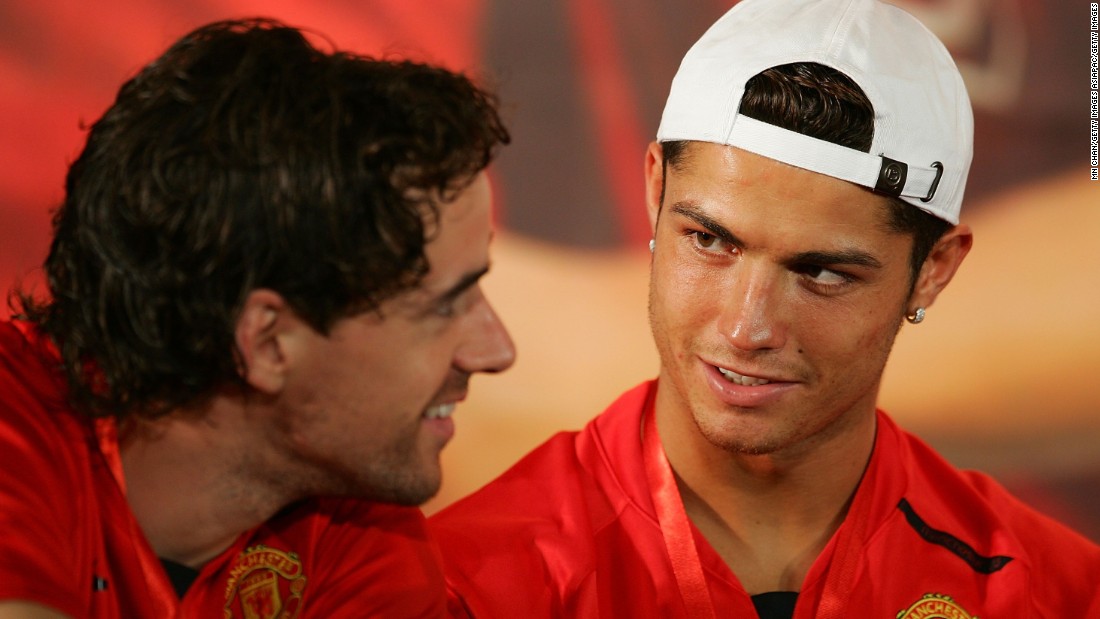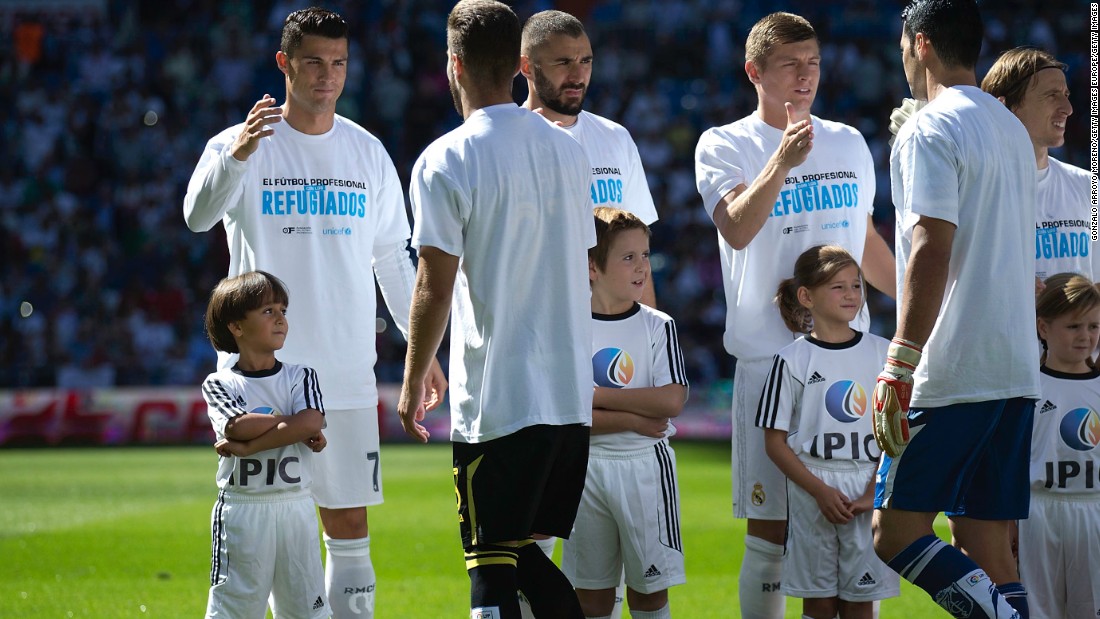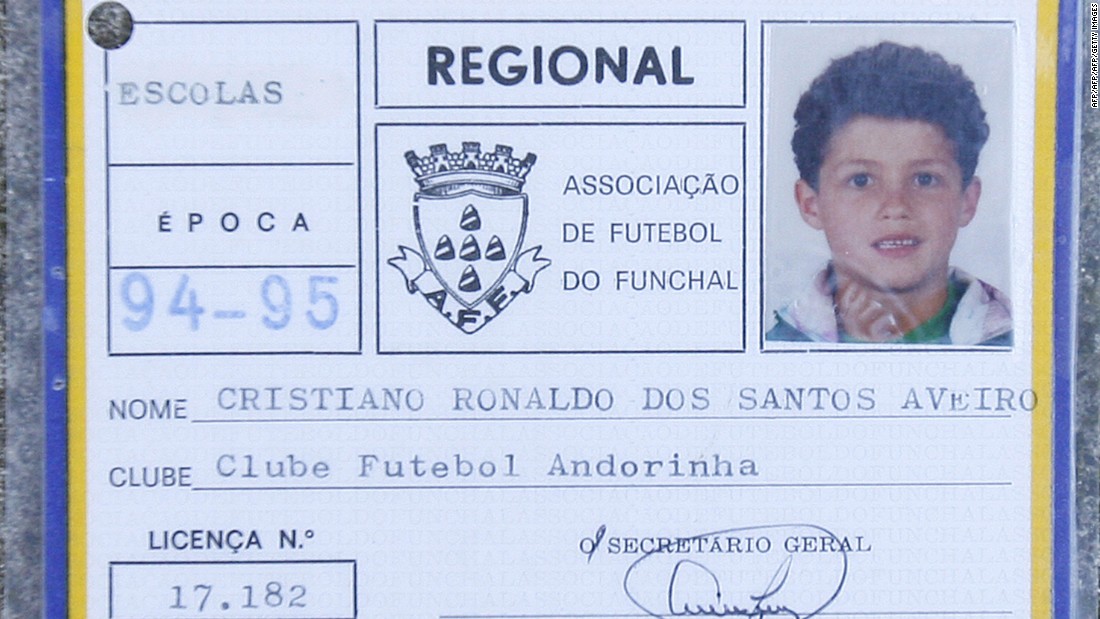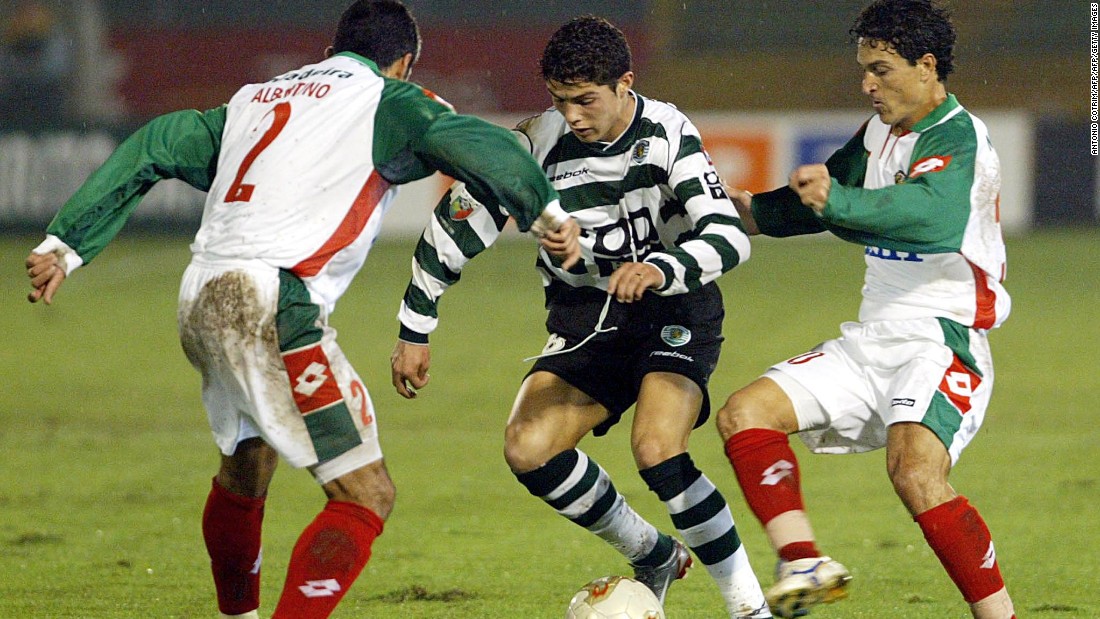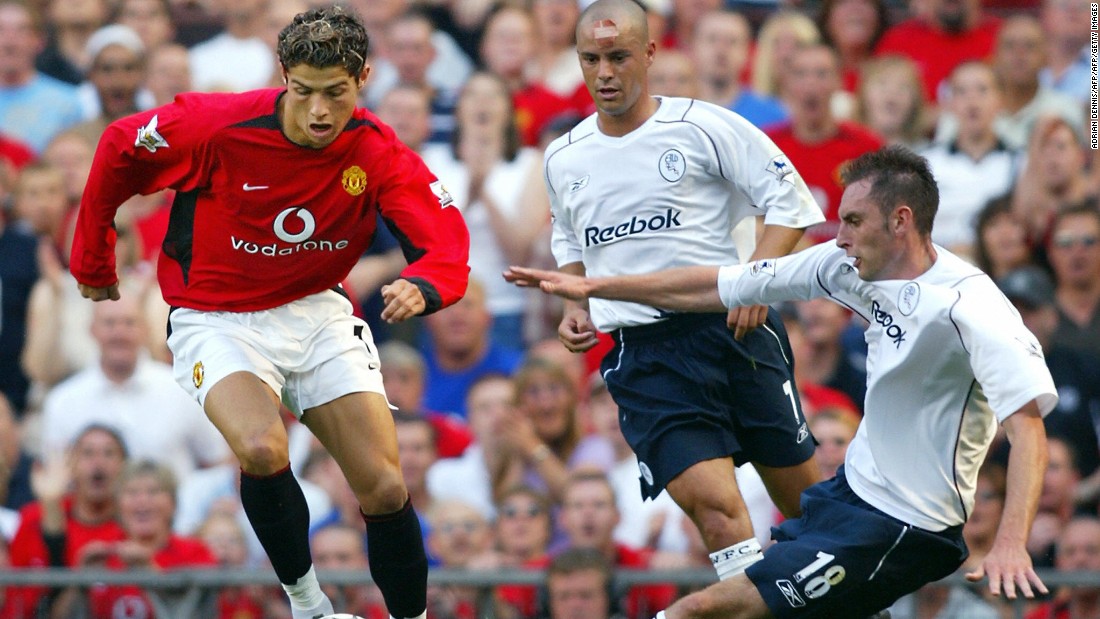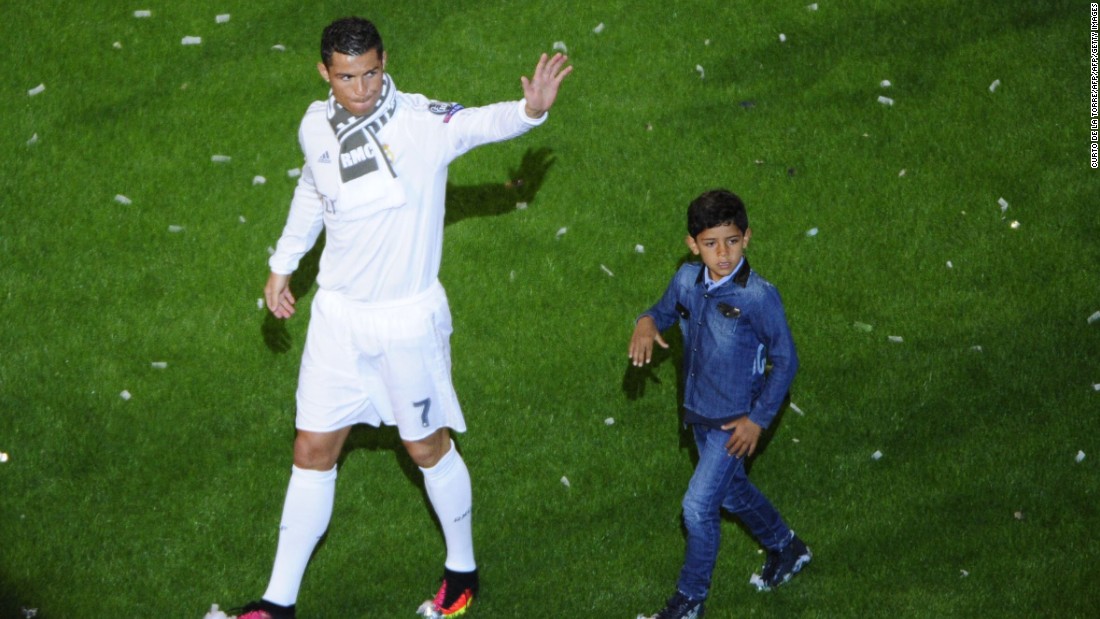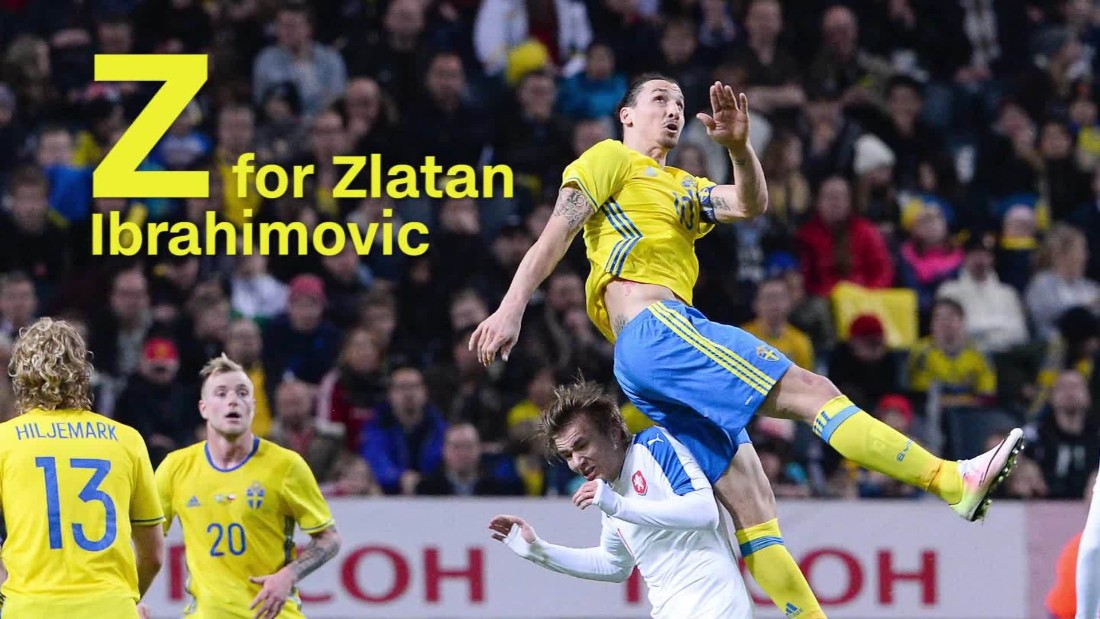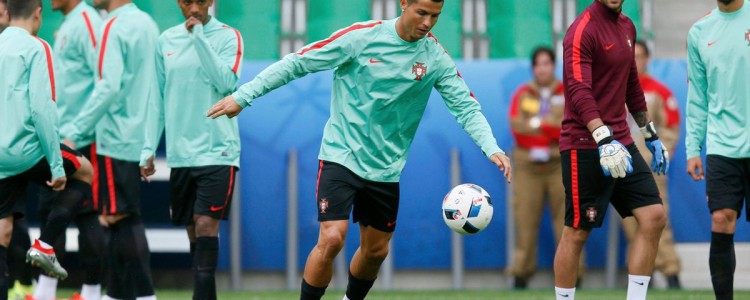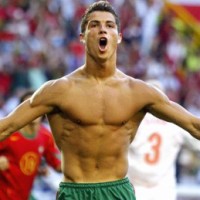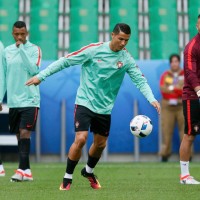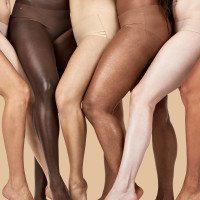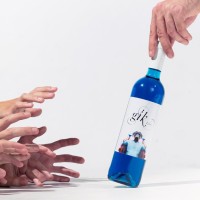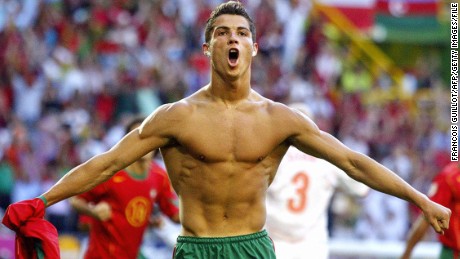
(CNN)Cristiano Ronaldo is not just a soccer player — he’s an icon, a global marketing phenomenon, the highest-paid athlete on the planet, and the face of one of the game’s most famous clubs.
The first sports star to have 200 million followers across social media, including Twitter, Facebook and Instagram, Ronaldo is out on his own when it comes to pushing his way to the top.
According to Forbes, he has
earned $88 million over the past 12 months — $56 million of that coming through his salary and bonuses at Real Madrid, with $32 million courtesy of numerous endorsements.
He’s become quite the brand … there is the CR7 clothing line, his own personal fragrance, his hotel range, his headphones — and that’s before his $20 million a year deal with boot provider Nike.
On the field, he’s also doing the business.
He’s the all-time leading goalscorer for Real Madrid, has scored more Champions League goals than anyone else in history, and is Portugal’s leading marksman too.
Add his three Champions League winner’s medals, four domestic league titles in Spain and England and three FIFA Ballon d’Or awards, and it’s easy to see why he’s one of the most famous men on the the planet.
Ice baths
“Cristiano Ronaldo is so successful because he is really serious, really professional,” his former Real manager Carlo Ancelotti told CNN.
“Usually when we got back at 3 a.m. from away games, instead of going to bed he would take an ice bath.”
Ronaldo’s work rate and desire to improve is frequently mentioned by those who have worked with the player in the past. His undoubted ability and match-winning moments have gained him millions of fans across the world.
And yet, for all his success, his countless trophies and goals, he continues to divide popular opinion. While few doubt Ronaldo’s talent, his perceived arrogance and vanity rankles with some football fans.
The ripped torso, the shirtless posing and the manicured image have given his critics plenty of ammunition in maintaining their argument that he is one of the most self-absorbed players on the planet.
After the player released his own film, a documentary detailing his life,
Guardian journalist Daniel Taylor came to the conclusion that the finished product was so vain “it is difficult not to come away with the feeling that Ronaldo must shout his own name during sex.”
His teammates, though, describe an athlete who is dedicated to his profession.
“He’s one of those players who polarizes opinion,” Owen Hargreaves, who played alongside Ronaldo at Manchester United, told CNN.
“Everybody loved him as a teammate and I think people misunderstood his body language because he was the ultimate competitor.
“People underestimate his work ethic and determination. As much as everyone thinks it’s all about him, he got there because he pushed himself.”
Ronaldo joined Nacional after impressing at amateur club Andorinha, where his father Jose Dinas worked as the kit man.
Even as a seven-year old he possessed quick feet, exceptional control and a hatred of losing — he was known to cry if his team did not win, a habit that led to him being nicknamed “chora” or “cry baby” by his teammates.
Not that it detracted from his talent — the word had already got out about the boy at Nacional.
Sporting chance
At Alcochete, the home of Sporting Lisbon’s academy, one of the finest in Europe, they could barely believe their eyes when Ronaldo took part in a three-day trial.
“I remember Ronaldo coming to us for his trial — he had exceptional talent with the ball — he had everything,” Aurelio Pereira, who led the club’s academy and recruitment program, told CNN.
“He arrived at Sporting not knowing anybody, but he had this great personality and he was soon telling everyone else what to do. He was the boss,” the 68-year old added.
But the transition from Madeira to Lisbon wasn’t easy for Ronaldo, who moved to the mainland aged 12.
He missed his family — his father was battling alcoholism — while he was often teased by his teammates for his accent.
Not that there was any teasing when he had the ball at his feet.
“It was difficult for me to say that he would go on to become one of the best in the world when I first saw him, but I could tell he was going to be amazing,” Pereira said.
“He was different to the other players — he had something else. I think it was in 2004 that I finally began to think that he would become the best in the world.”
In more than 40 years at the club, Pereira has helped Sporting unearth some of Portugal’s most talented players.
He watches Ronaldo’s games on television like a proud grandfather, and the two men share phone calls on a regular basis.
“We spoke just last week,” Pereira said. “I watched the Champions League final and he showed the same kind of responsibility for Real that he did as a youngster.
“His personality shone through in the way he took the penalty in the shootout — he always wanted to take responsibility.”
Ronaldo scored twice on his first-team debut at the age of 17 and was soon attracting the attention of Europe’s biggest clubs.
In August 2003 his big break came — a $17 million transfer to Manchester United.
Ronaldo’s time in Spain has been marked by his duel with Lionel Messi, who plays for Real’s great rival Barcelona, and the two men have taken football to heights that few had ever thought possible.
Ronaldo has made himself at home in Madrid — his mother Dolores arrived to live with him and his son, Cristiano Jr.
“The thing about Ronaldo is that he has everything,” Hargreaves said. “You look at other great players over the past 10 years like Xavi, Andres Iniesta and Zinedine Zidane, all wonderful players, but Cristiano has every single ingredient.
“He is blessed. He can beat you in so many different ways, whether it’s by sprinting by you, beating you in the air, getting in behind you — he has it all.”
Portugal awaits
In Funchal and across Portugal, all hopes will be pinned on the man who last season scored 51 goals for Real and led the club to a record-extending 11th European title.
He will have a supporting cast of young pretenders, including Bayern Munich’s new signing Renato Sanches, an 18-year-old midfielder of vast potential.
Joao Mario of Sporting and Valencia’s Andre Gomes are both exciting midfield players, while William Carvalho has long been admired by English Premier League clubs.
“Portugal is not a one-man team,” national coach Fernando Santos said before this month’s friendly game against England.
But even when his talisman is not physically present, Santos still finds himself doing what he does most of the time — talking about Ronaldo.
“He is really motivated,” Santos told reporters.
“He was extremely motivated to win the Champions League and he is even more so now because the European title is his ambition. He is ready to take Portugal to such an important success.”
Should Portugal succeed, then Santos may find himself having to speak about Ronaldo not just for a day — but for the rest of his life.
Read more: http://www.cnn.com/2016/06/14/football/cristiano-ronaldo-euro-2016-portugal-football/index.html

